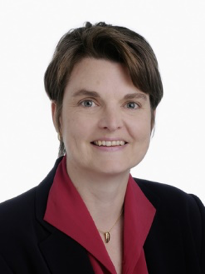
Do you lead or work in an intercultural context? Would you like to? In our taught-in-English CAS International Leadership (Certificate of Advanced Studies) we focus on the four core challenges of international leaders. Give your cv a boost today with this recognized Swiss CAS from the Lucerne University of Applied Sciences and Arts – Business!
The combination of self-study and onsite sessions, coupled with flexible coaching times, and a choice of international weeks make it possible for even the busiest of participants to successfully complete this CAS within one year. We are happy to advise you.
The next information session is on Tuesday, 9 April 2019 in Lucerne. Register for a complimentary info session via www.hslu.ch/il
Regardless of mission and size, organizations increasingly become international players in their respective sectors, conducting business and competing on a cross-country scale. This raises the stakes for leaders to identify solutions to pressing international and intercultural challenges, thereby finding their way in the global village.
With the CAS International Leadership, the Lucerne University of Applied Sciences and Arts – Business supports leaders in identifying and implementing the right solutions. Participants focus on four core challenges of international leaders:
- How do I internationalize the DNA of my organization?
- What are the key success factors that need to be considered when conducting business internationally?
- How do I continuously develop my own intercultural competence?
- And how do I lead a diverse team of employees and external stakeholders, both directly and virtually?
To tackle these leadership challenges, respected experts from both academia and practice deliver customized content. Participants gain immediate international experience in Asia, North America and Europe, through selected International Weeks. During these International Weeks, the international leadership challenges become concrete as a direct result of partner universities being committed to offering advanced training opportunities on the ground that encompass both lectures and site visits to key organizations and stakeholders.
We designed the program for current and prospective leaders who interact with international stakeholders, both at home and abroad. These individuals strive to identify and shape both effective and interculturally sensitive solutions for themselves and their organizations and aim to successfully address their specific management challenges when conducting business on a cross-national scale.
What we would like to achieve together with this audience is ambitious. At the end of the program, graduates should be able to :
- apply techniques for increasing the international responsiveness and competitiveness of their respective organization,
- forecast likely international leadership and management challenges,
- broker fitting solutions based on a clear understanding of divergent stakeholder expectations,
- and use the strengths present in their teams for building bridges across the differences and by removing obstacles in situations of conflict and crisis.
Over the course of one year, participants move through four phases.
Phase one: we lay the foundation for successful international leadership. For this foundation, we focus on the four core challenges that we believe international leaders need to address and solve: internationalizing their organization, being able to expertly decipher intercultural differences, developing intercultural sensitivity for bridging these differences, and developing leadership behaviors that are conducive and acceptable across cultures.
Phase two: participants are assessed on their intercultural competence, receiving personalized international leadership coaching and developing a personal leadership development plan.
Phase three: participants attend two International Weeks that offer both international leadership training and experience abroad.
Phase four: participants transfer and apply their learning to the specific international leadership challenges they face, and present the results of the related assignment in both a written and oral format.
The program starts in June 2019 with sessions aimed at ensuring a solid foundation. Then, during the summer, the coaching and personal development plans will be set. Depending on the choice of the two International Weeks, participants study in Vancouver at the end of September/beginning of October 2019, Bangkok in February 2020 and/or San Sebastian in April 2020. The program ends with the presenting of the assignment results in May 2020.
After successfully completing the program, participants will receive their CAS diploma and 15 ECTS. Participants have a similar workload to other CAS programs at our university. Given the unique international format, however, the workload is spread out across one year, with peaks in June 2019 with the Foundation Sessions and during the two visits of the International Weeks.

Prof. Jillaine Farrar
Lucerne University of Applied Sciences and Arts – Business
Hochschule Luzern-Wirtschaft
Co-Head CAS International Leadership
Head of Exchange Program
‘In my role as co-head of our taught-in-English CAS International Leadership (www.hslu.ch/il), I advocate that the international dimension needs to be experienced in person. This is why we offer well-designed opportunities for international learning in this executive-education program, both in Switzerland and abroad. And since we strive to make learning concrete, our assignments reflect an experienced-based and practical approach.’
Jillaine Farrar, Sietar Switzerland Member.
For program fee or further information, please refer to the brochure on www.hslu.ch/il
